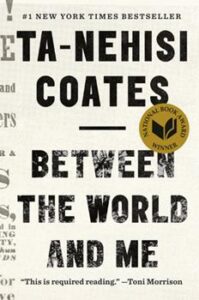 Today, in a fitting end to Banned Books Week 2023, I hope you’ll join me in celebrating “Let Freedom Read Day.” Those with even one eye on the news know that book bans and restrictions are on the rise in classrooms and libraries across the nation. Since January 2021, 45 states have introduced bills or taken other steps to restrict how teachers discuss controversial issues. Seventeen states, including Tennessee, have imposed bans and restrictions through legislation. School boards and parents are challenging curriculum choices, seeking to remove books from classrooms and libraries and calling for teachers to take down posters or banners supporting social justice causes.
Today, in a fitting end to Banned Books Week 2023, I hope you’ll join me in celebrating “Let Freedom Read Day.” Those with even one eye on the news know that book bans and restrictions are on the rise in classrooms and libraries across the nation. Since January 2021, 45 states have introduced bills or taken other steps to restrict how teachers discuss controversial issues. Seventeen states, including Tennessee, have imposed bans and restrictions through legislation. School boards and parents are challenging curriculum choices, seeking to remove books from classrooms and libraries and calling for teachers to take down posters or banners supporting social justice causes.
Some teachers have submitted. Others have vowed to fight.
Mary Wood is one educator in the heat of the battle. She teaches English at Chapin High School in South Carolina. Last spring, Wood assigned “Between the World and Me,” a non-fiction book by African-American author Ta-Nehisi Coates, to an all-white class of Advanced Placement students. They were asked to read the book and, using a variety of other sources, determine if what Coates wrote about racism in America was valid. Two of Wood’s students complained to the local school board, claiming the book made them feel ashamed to be white. It’s against the law in South Carolina for teachers to use materials or make statements that cause students to “feel discomfort, guilt, anguish or any other form of psychological distress” on account of their race.
District officials ordered Wood to stop teaching the book. “So,” she said, “we didn’t finish it.” Wood herself is a graduate of Chapin High School and had taught English to college and high school students for more than a decade before the recent controversy arose. She was surprised and grateful that Coates himself showed up at a school board meeting last summer to show his support. But she has begun the current school year with some anxiety. “This don’t-make-anyone-uncomfortable proviso is a slippery slope,” she said. “My advice to teachers is to be bold. Don’t back down. It’s important not to acquiesce just because somebody complains. The loudest voices aren’t the only voices.”
When I discovered Mary Wood’s story, I changed my mind on what to write about in this banned books column. I’d read a number of the books on the “Top Ten List,” most of which were challenged because of their sexual content, but I let all that go. Lucky for me, the Putnam County Library has a copy of “Between the World and Me,” which I hastened to check out and read.
Published in 2015, the book is an open letter by Coates to his son, reflecting on his feelings of hope and despair in the struggle for racial justice in the United States. It won the National Book Award and received other honors too numerous to mention. It has also been the target of censorship efforts far beyond those in the Lexington-Richland, S.C. school district. Many of those efforts are aimed at books by and about people of color.
“Between the World and Me” is a short book—only 152 pages—but not an easy one. Its theme is that the American empire was built on and by the bodies of Black men and women, bodies exploited through slavery and segregation and even today still threatened, locked up and murdered with reckless abandon. It’s an uncomfortable message but one that needs to be talked about, not only by adults of all races but by young people as well.
Because if we don’t learn about and acknowledge the wrongs of our past, how can we expect to make our present or future any better?
The time is now for readers who believe in the truth to stand up and speak up for writers, publishers, booksellers, educators and library staff who are committed to making controversial books available to those who want to read them. During Banned Books Week and always.
(October 7, 2023)